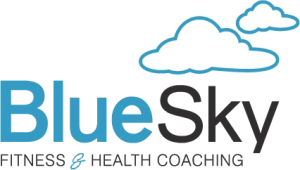I’m too tired at the end of the day. I don’t enjoy sweating. I have too many things to do. I need to pick up the kids … Sound familiar? These are responses to the question why don’t you exercise more often, or why don’t you exercise at all.
If you would like to be more active, answer the following questions as accurately as possible. Circle the most appropriate response.
1. I enjoy how I feel when I finish walking, stretching, or jogging (yes, no).
2. I value the time I spend on physical activity (yes, no).
3. I enjoy the idea of being more active (yes, no).
4. I could find 10-15 minutes per day in my schedule to walk or roll – those in wheelchairs or those who prefer rollerblading (yes, no)
If you answered yes to most of the questions, you are at the fantastic point of being willing to add small amounts of daily activity to your schedule. Valuing physical activity and the time you spend on it is an important part of the process of benefitting your overall well-being, and you are definitely worth it.
Start by setting small, short-term goals for yourself. These will be easier to maintain and obtain. For example, you may begin by saying you will take the stairs once during the day, or promise you’ll walk around the block on your lunch-hour two times per week. Any amount of activity will help you feel better in the long-term. Once you have added activity, it is contagious. You will want to add more.
If you answered no to most of the questions, you are a tougher case. However, If you answered yes to number four, we know you can find a bit of time to put in some exercise. It appears that you may not value the importance exercise plays in your life. More than likely, you have been bombarded with information about the technical health benefits of exercise, or you may feel exercise is for the fanatical types. Answer the following questions.
What would I gain by adding physical activity to my schedule?
What would I have to give up to be physically active?
Review your responses. Determine which category has the most responses, or will give you the greatest benefits in the long term. If you have to give up more than you would gain, this may not be the time to add more to your schedule. It may be in your best interest to get the other aspects of your life in balance first, and then revisit these questions. If, however, you have more to gain by being active, what are you waiting for? Let’s do it. Invite your friends and family to join you. The benefits will be tremendous.
If you answered yes to numbers one to three, but no to number four, answer these questions.
What activities do I like to do?
Where could I realistically fit an activity into my schedule? (even once a week)
Begin the process by small changes. If, at this point, you feel that you are unable to fit any activity in anywhere, try talking to a friend who can help you realistically look at your schedule. Give yourself credit for being active one time. Each time you are active, schedule another time. Book your activity time like any other appointment and keep it. Don’t cancel on yourself.
On the serious side: Nobody is too busy to do even a small amount of exercise each day. Be like a cat. Start your day with an overall body stretch each morning.
On the fun side: Go for a walk and people-watch. You may see some interesting characters, or you may meet some new friends.
You’ve got this!
Kathryn



